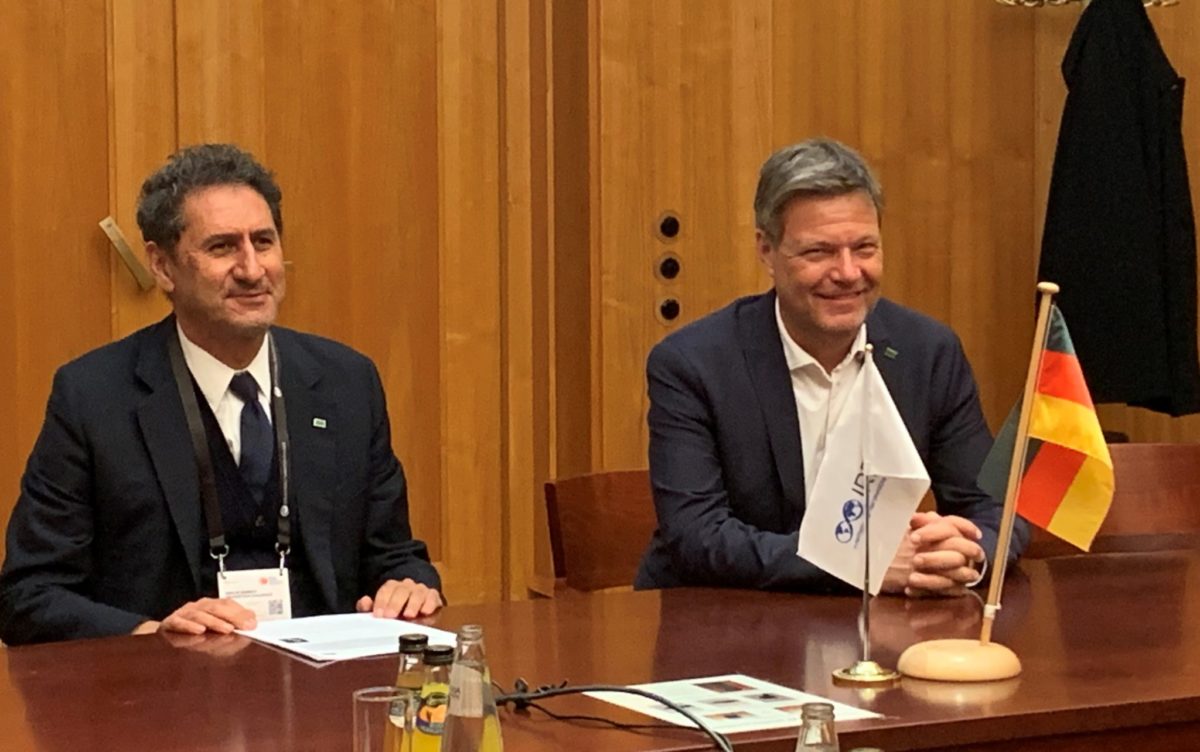From pv magazine Global
The Berlin Energy Transition Dialogue 2022, which was held on Mar. 29 and 30 in the German capital, has inevitably seen the war in Ukraine dominate discussions and has also clearly shown that politicians, stakeholders, and analysts all agree that there is no way back to old mindsets and conventional approaches to energy supply.
“We are not on track to stop climate change and we have to be very aggressive at this stage,” said Francesco La Camera, the Director-General of the International Renewable Energy Agency (IRENA) during the opening session of the event.
“Germany wants to become fully energy independent from Russia,” said the German Federal Minister for Foreign Affairs, Annalena Baerbock during the same session. “Going alone, nationally, won’t work. We need a common European approach, which means Europe may become the world’s first continent in becoming climate-neutral.”
The German Federal Minister for Economic Affairs and Climate Action, Robert Habeck, said there is a need for a common European effort to reduce energy dependence on Russia, although he admitted this will not be easy to achieve, noting the high costs German households and businesses may be forced to face in the near future. “We need to upscale renewables and bring back renewable energy manufacturing to Europe, even if it will be costlier,” he said. “We have to ensure prosperity while protecting the peace.”
In a short conversation with pv magazine after the opening session, La Camera stressed the centrality of green hydrogen in the long transition phase that we are likely to experience in the years to come. “Green energy capacity and demand should grow together, but when we speak for hydrogen producers they all say they are ready, but demand is still too low,” he said. “The problem is that big energy consumers that want to transition from one fuel to another have to adapt their infrastructure and this is probably not the right moment to add these costs. If we want to accelerate this process, policymakers will have to take the right steps.”
According to La Camera, the world will increasingly rely on green hydrogen, although at the current pace it may not be enough to help reduce carbon emissions and comply with Paris climate targets. “We need incentives of any kind, from tax credits to investment support,” he said. “There are many tools available and reducing tax burdens on new investments by businesses that want to rely on clean and climate-neutral fuels is a key move in this turbulent transition phase.”
La Camera suggested a granular approach should be considered for implementing these policies, depending on the particular regional characteristics of each market. “And this is not only about hydrogen,” La Camera said, “because its development goes hand in hand with that of renewables. We need electricity grids that can absorb the huge potential we have. For example, in North Europe, we could add immediately enormous amounts of wind power, but we don’t have enough network capacity. Improving and building infrastructures is one of our biggest task.”
According to IRENA Director-General, the market may help solve most of the issues that politics will not address. “Inevitable, the market will select the less expensive energy generation sources,” he said. “The problem is how quickly this scenario may materialise. Once we will have filled the gap between several sectors and the cheapest options, we will see an unprecedented deployment of renewable and green hydrogen. For this, creating a hydrogen demand is crucial and incentives for helping enterprises reconvert their energy supply to the clean fuel.”
This content is protected by copyright and may not be reused. If you want to cooperate with us and would like to reuse some of our content, please contact: editors@pv-magazine.com.









1 comment
By submitting this form you agree to pv magazine using your data for the purposes of publishing your comment.
Your personal data will only be disclosed or otherwise transmitted to third parties for the purposes of spam filtering or if this is necessary for technical maintenance of the website. Any other transfer to third parties will not take place unless this is justified on the basis of applicable data protection regulations or if pv magazine is legally obliged to do so.
You may revoke this consent at any time with effect for the future, in which case your personal data will be deleted immediately. Otherwise, your data will be deleted if pv magazine has processed your request or the purpose of data storage is fulfilled.
Further information on data privacy can be found in our Data Protection Policy.